Permafrost Pathways hosts Arctic youth, commemorates partnership with International Centre for Reindeer Husbandry
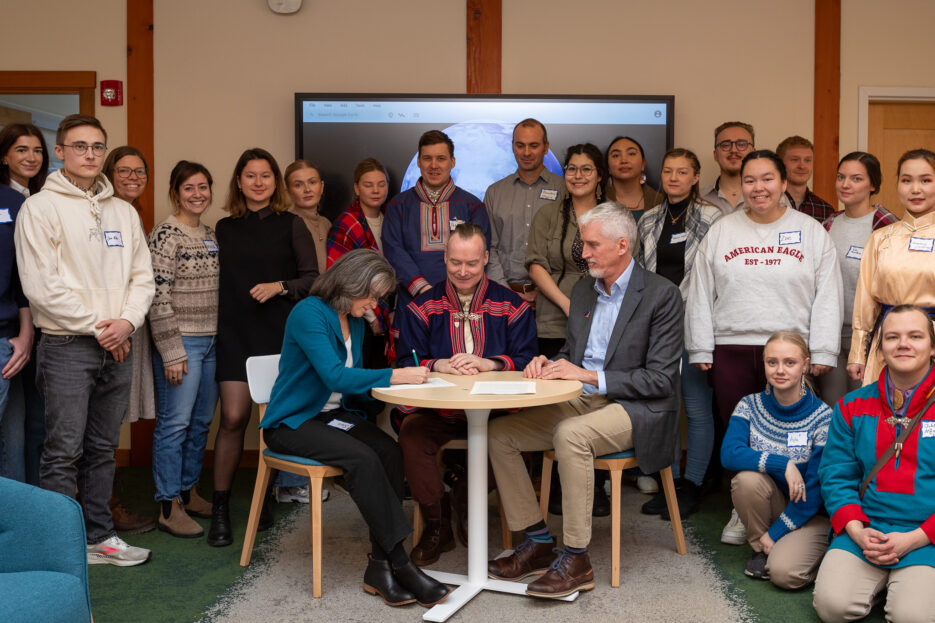
Arctic Indigenous youth leaders gather with Arctic Initiative, Woodwell Climate, and ICR staff as the MOU is signed. Photo by Dee Sullivan / MinFin Photography
Arctic Communications Specialist, Woodwell Climate Research Center
Partners celebrated new collaboration with special day of Arctic programming
As part of a new partnership between Permafrost Pathways and the International Centre for Reindeer Husbandry (ICR), the Arctic Initiative at Harvard Kennedy School (Arctic Initiative) and Woodwell Climate Research Center (Woodwell Climate) hosted 18 Indigenous youth from across the circumpolar North for a day of science, mapping, storytelling, and policy programming. Woodwell Climate Senior Scientist and Permafrost Pathways Lead Dr. Sue Natali signed a formal Memorandum of Understanding (MOU) with ICR Executive Director Anders Oskal and Woodwell Climate President Dr. Max Holmes establishing a new relationship focused on climate change and Arctic resilience.
Nika Silverfox-Young (left) and Charitie Ropati (right) share the impacts of climate change in Alaska during morning introductions. Photos by Dee Sullivan / MinFin Photography
The event was part of the Arctic Innovation Lab—a program that builds capacity among younger generations, uplifts youth voices, and facilitates discussions focused on developing solutions to climate change in the Arctic. In partnership with the Arctic Initiative, the lab is a facet of the global GEF-UNEP Reindeer Herding and Resilience project led by ICR’s Dr. Prof. Svein D. Mathiesen and Project Coordinator Marina Tonkopeeva, and the UArctic EÁLAT Institute. Oskal, Tonkopeeva, and the Arctic Innovation Lab’s third youth cohort visited the Woodwell Climate campus to participate in a variety of thematic sessions, beginning with an overview of how Arctic change caused by permafrost thaw and boreal fires is impacting communities, infrastructure, and natural ecosystems.
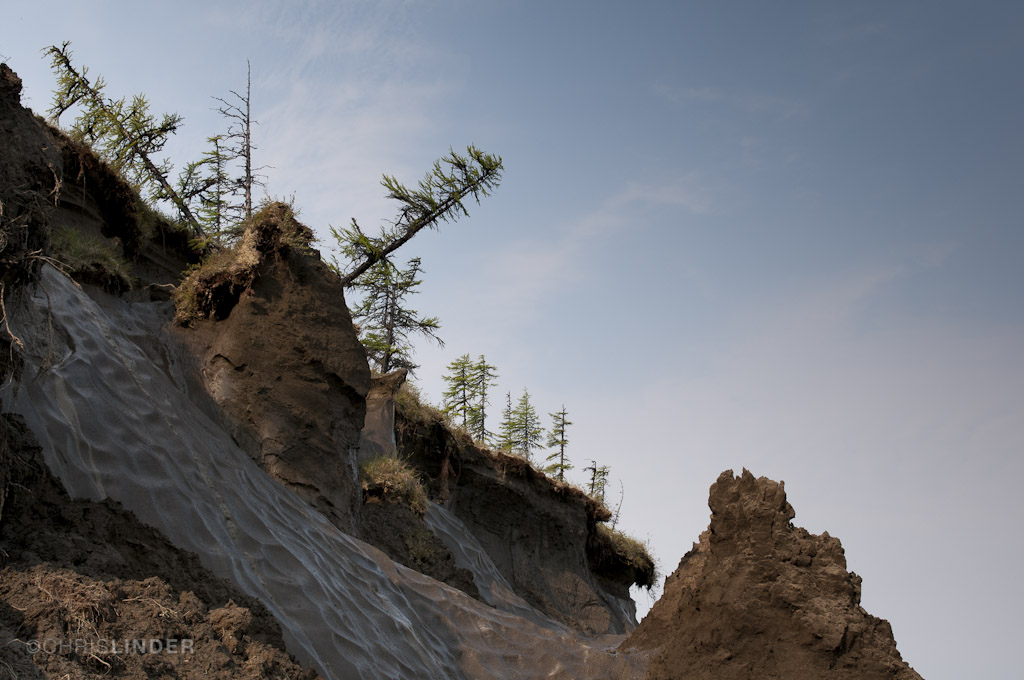
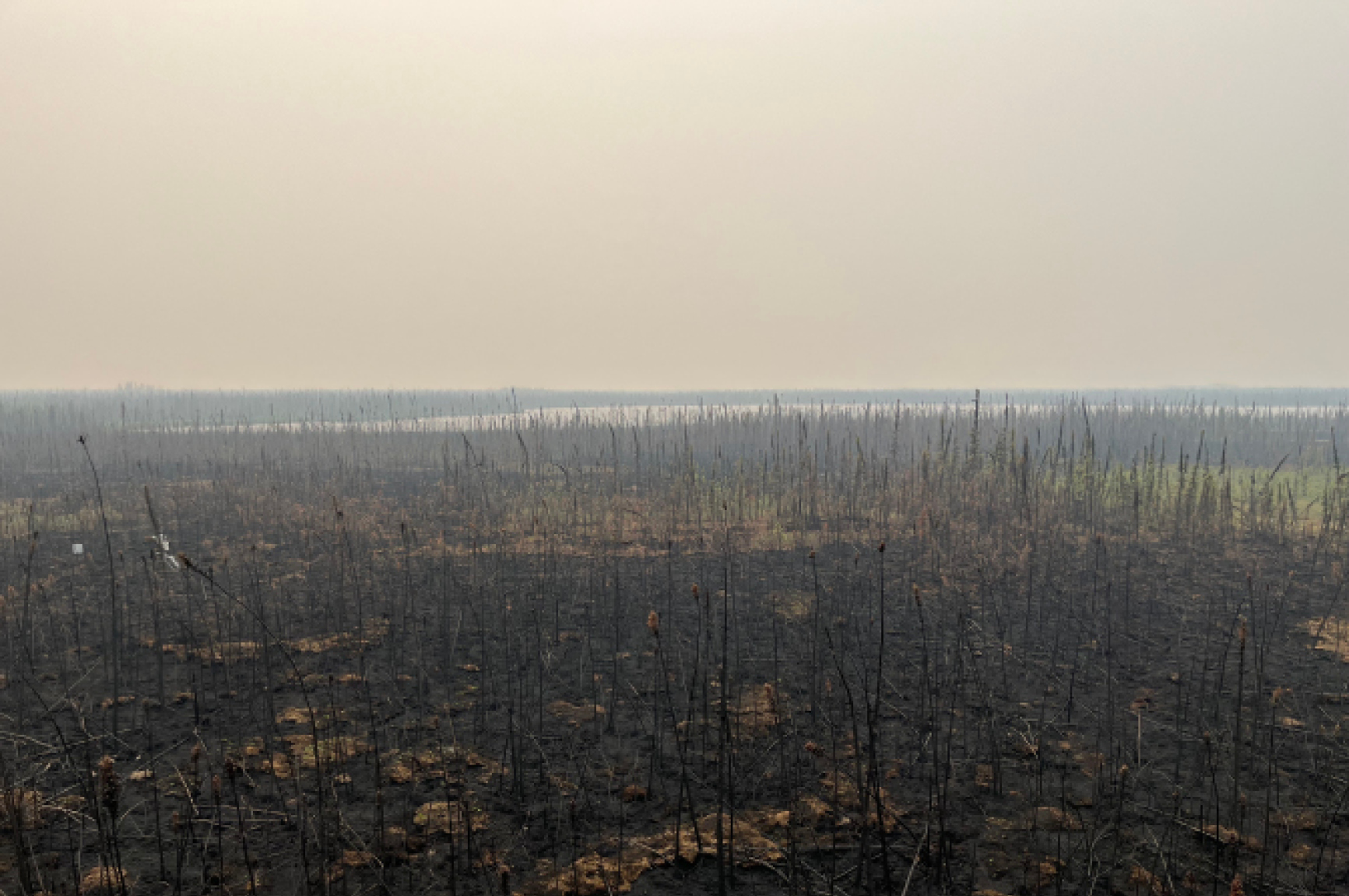
LEFT: Thawing permafrost in Siberia. Photo by Chris Linder.
RIGHT: A scorched boreal forest after a late-season wildfire in the Northwest Territories, Canada. Photo by Marco Montemayor / Woodwell Climate Research Center
Other programming included presentations about the global importance of Arctic warming and how to leverage tools like mapping to both illustrate change in the Arctic and to effectively communicate the urgent need for solutions to policymakers. Indigenous youth leaders from Mongolia, Finland, Sweden, Norway, Russia, Canada, and Alaska shared unique stories about life in the north and described the changes they’re experiencing caused by climate change, development, and government policies that are collectively threatening their traditional ways of living.
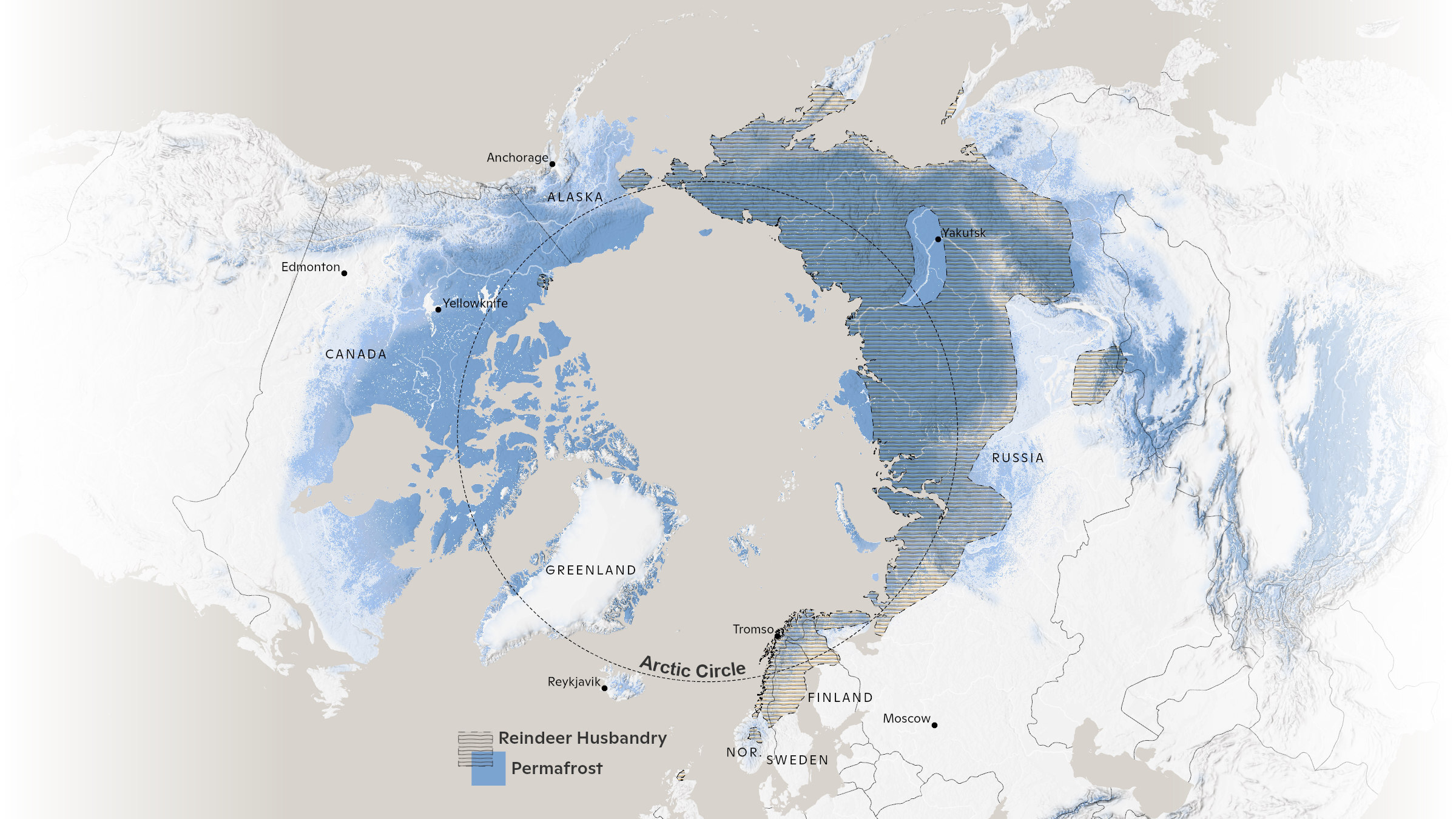
Reindeer husbandry lands (hatched area) span much of the permafrost region (blue shading) across Eurasia. Map by Greg Fiske / Woodwell Climate Research Center
Today, about 100,000 people across nine countries participate in reindeer herding with about 2.5 million semi-domesticated reindeer. Reindeer herding peoples, such as the Sámi, have practiced subsistence ways of living across the Arctic region since time immemorial. The intimate relationship between reindeer and Sámi people is one of ancient origin that transcends practicality—their health, wellbeing, and futures are mutually dependent on one another.
But reindeer and reindeer herders face profound challenges as they grapple with pasture loss, the intrusion of extractive industries, and the impacts of Arctic climate change such as permafrost thaw and land degradation. Reindeer husbandry is forced to adapt to these threats while trying to maintain their traditional lifeways. Stewarding the preservation of this centuries-old knowledge and culture is one of the many responsibilities of ICR.
TOP: Reindeer in the Siberian Arctic.
BOTTOM: Reindeer antlers on the tundra.
Photos by Chris Linder.
Founded in 2004, ICR is the organizing body responsible for enhancing global understanding of reindeer husbandry and reindeer herding peoples, their traditional knowledge, and how their cultural practices will be sustained in an increasingly warming climate. By establishing interdisciplinary cooperation amongst reindeer herders, research and academic institutions, industry, and international governments, ICR continues to work toward a sustainable and resilient future for circumpolar reindeer husbandry.
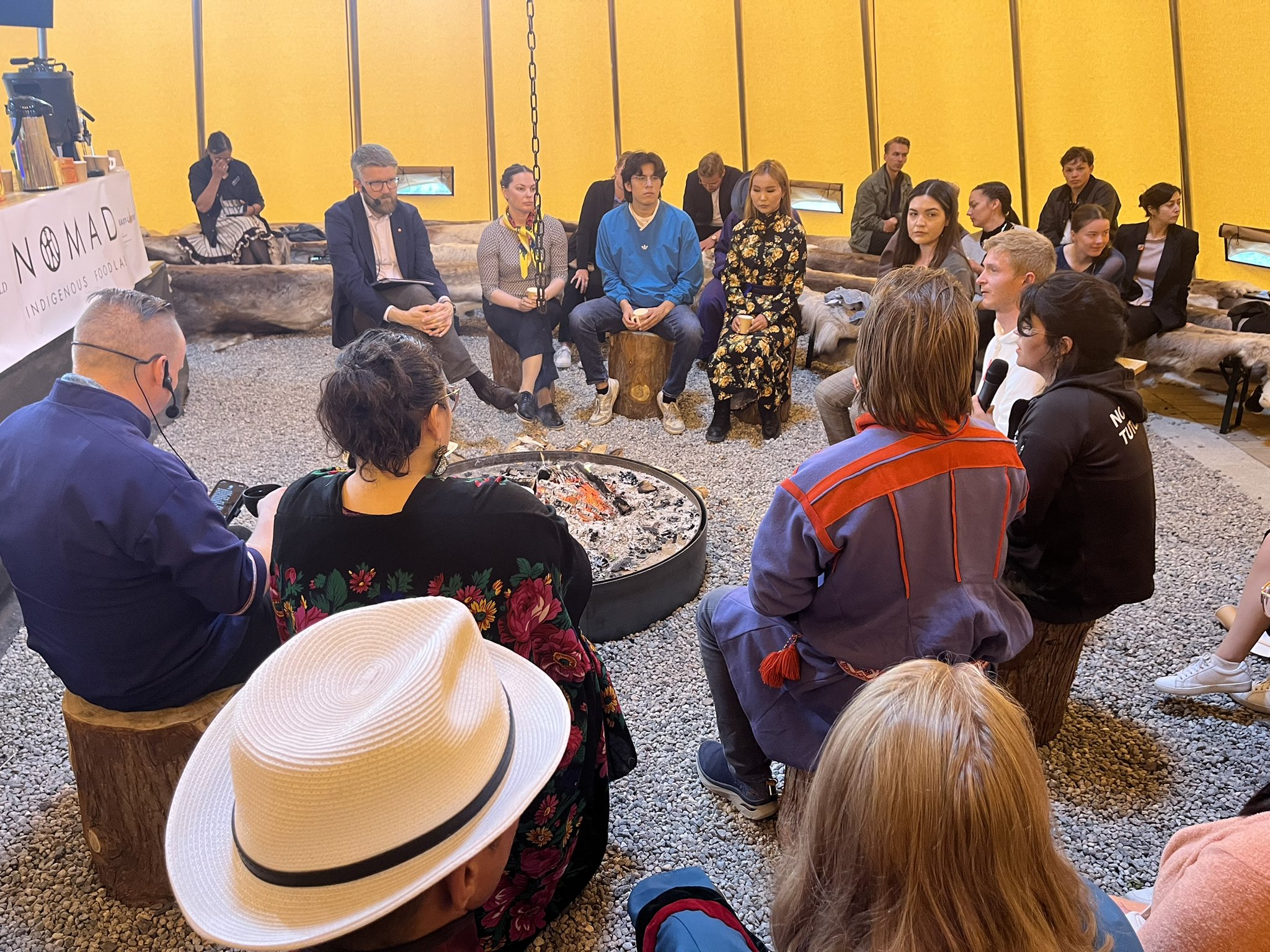
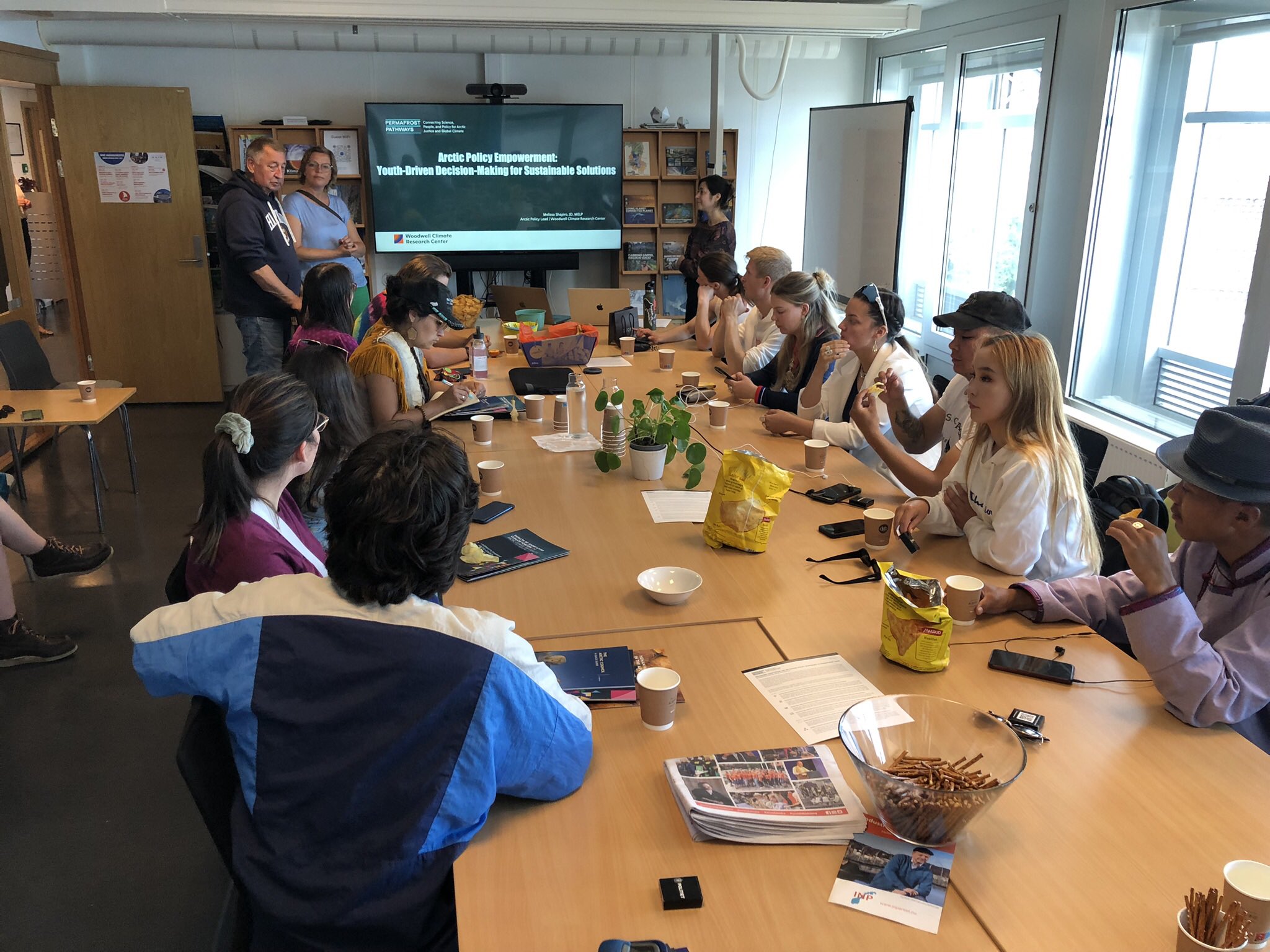
Arendalsuka Political Gathering in Norway. Photos courtesy of Arctic Initiative at Harvard Kennedy School.
Permafrost Pathways first began working with ICR in August 2023 during a workshop at the Arendalsuka Political Gathering in Norway. The week-long workshop organized by ICR focused on enhancing Arctic resilience and addressing land degradation and permafrost thaw through Indigenous youth empowerment, creating a dedicated space for youth to be heard and build the necessary leadership and policy skills to actively influence legislation.
TOP: Juhán Nikolaus Wuolab Wollberg shares stories of traditional Sámi reindeer herding in Norway.
BOTTOM: The youth cohort exploring the map table during a tour of Woodwell Climate led by Senior Geospatial Analyst Greg Fiske.
Photos by Dee Sullivan / MinFin Photography
Permafrost Pathways partners and ICR will be co-producing maps of land use and landscape change while co-designing GIS training courses for Indigenous youth in Norway and Mongolia with the common goal of supporting community-led solutions to land degradation in the Arctic. The Permafrost Pathways policy and communications teams are also working closely with ICR to expand collaborative programming at upcoming events and workshops to support youth empowerment and advance adaptation, resilience, and intergenerational justice in the Arctic.
Go to top

